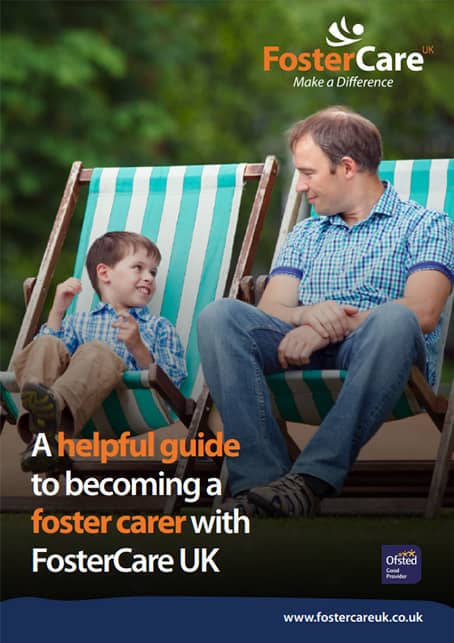


What happens when a child is taken into care?
Benefits of being a foster parent
What is a care leaver?
How to become a foster parent
How to foster a child
What are the foster care requirements
Can I choose who I foster?
Fostering with pets FAQ
How long does it take to become a foster parent?
What is the role of an independent fostering agency?
Fostering a disabled child
Tips for coping when foster placements end
Do foster carers pay tax?
What to expect in a fostering assessment
Common Fostering Challenges and Solutions
What disqualifies you from being a foster carer?
Muslim Fostering
Fostering as a single parent
Can you foster a child with a criminal record?
Can you work and foster?
Top 10 fostering myths
Can I foster if…?
Can I foster and rent?
LGBT Fostering: can I foster if I’m gay
Top transferable skills to become a foster carer
Can you foster with a mental health condition?
Christian Fostering
Sikh Fostering
Cultural Diversity in Foster Care
How to encourage foster children to read
Reasons for a child to be taken into care
Tips for coping with attachment disorders in Foster Children
Fostering vs Adoption
What happens when foster parents get divorced?
What is reunification in foster care?
How to deal with foster child bullying
A guide to the foster care handbook
Guide to fostering young children
Types of self-harm
A guide to fostering teenagers
What are the signs of depression in foster children?
Interested in becoming a foster carer? Perhaps you’re looking for further information to begin your application, or maybe you’re simply looking for some guidance – find out how to become a foster parent from our detailed guide.
Firstly, it’s important to find out if you’re eligible for fostering. The fostering requirements state that:
If you feel you possess these qualities and you meet these initial criteria for fostering, start your application process today by getting in touch with a member of our friendly team here at FosterCare UK. Here we can organise an initial discussion which will inform you more of the fostering process and give you information which should determine whether you want to continue fostering as a career.
Next, you will be appointed a social worker who will carry out a Form F Assessment. This looks to evaluate the level of time and energy you have available to care for a young child, as well as general health and space in the home. You will also have a DBS check carried out on you and all members of the household who are over 18 years of age. This process can take up to around six months as it gives an extensive insight into your family and lifestyle, and thoroughly determines your eligibility for foster care.
You can expect a number of visits from your social worker to your home in order for them to create an accurate picture of your family life. During this time, you will also be attending fostering training courses and sessions which will help prepare you for your career as a foster carer.
As soon as the Form F Assessment is complete, this assessment will be quality assured and presented to an individual panel who will assess your application. Recommendations based on your assessment will then be provided to FosterCare UK – who will make the final decision.
You may be wondering how to be a foster parent – but do not worry, we have extensive fostering training and support every step of the way. Learn more about our recruitment process today and get in touch with a member of our FosterCare UK team for further information on becoming a foster parent.
If you’ve got any questions or would like to find out more about fostering with Capstone, fill out the form below.
An experienced fostering advisor from your local area will then be in touch.

Start the conversation today. Our team of friendly advisors are on hand to answer any foster care questions you may have. We can offer you honest and practical advice that can help you decide if becoming a foster carer is the right path for you.


